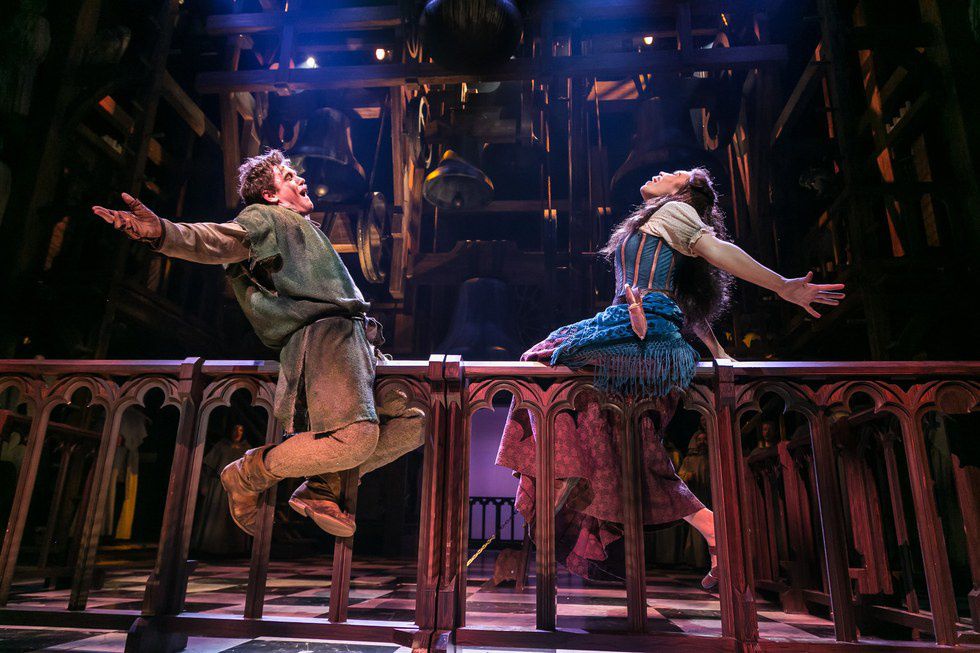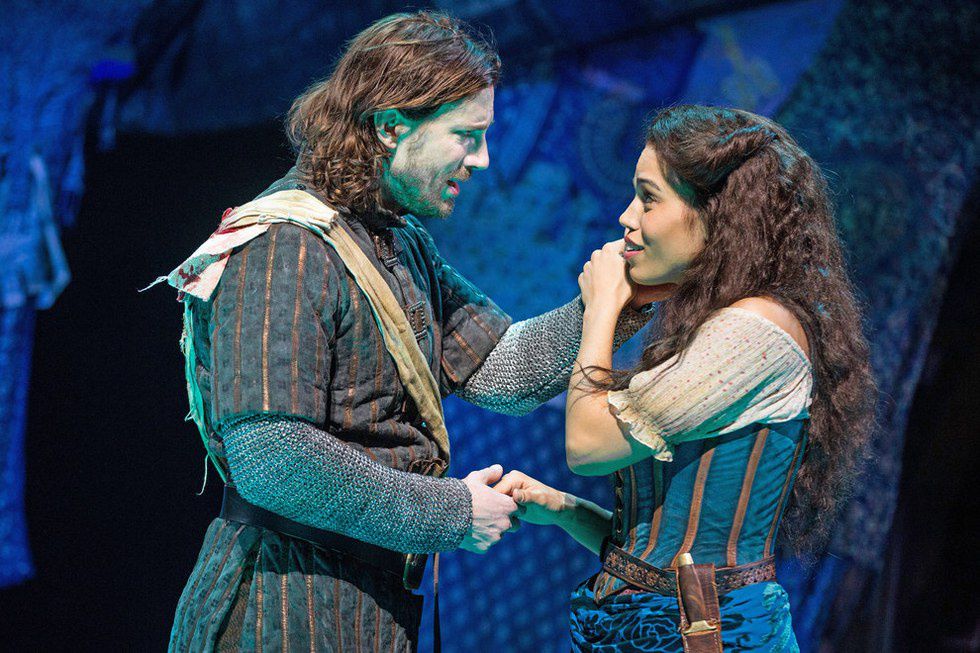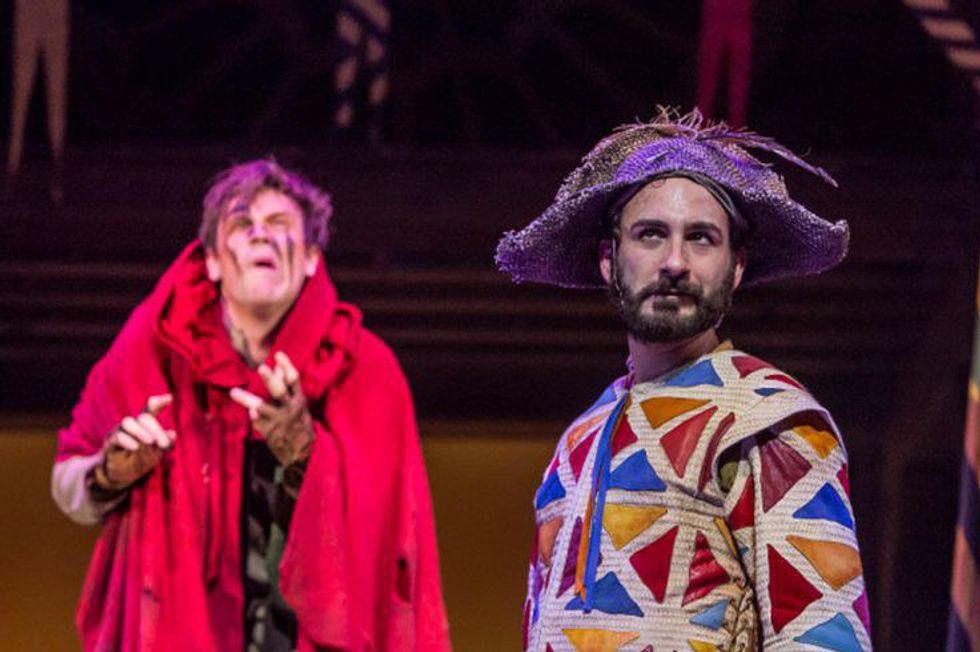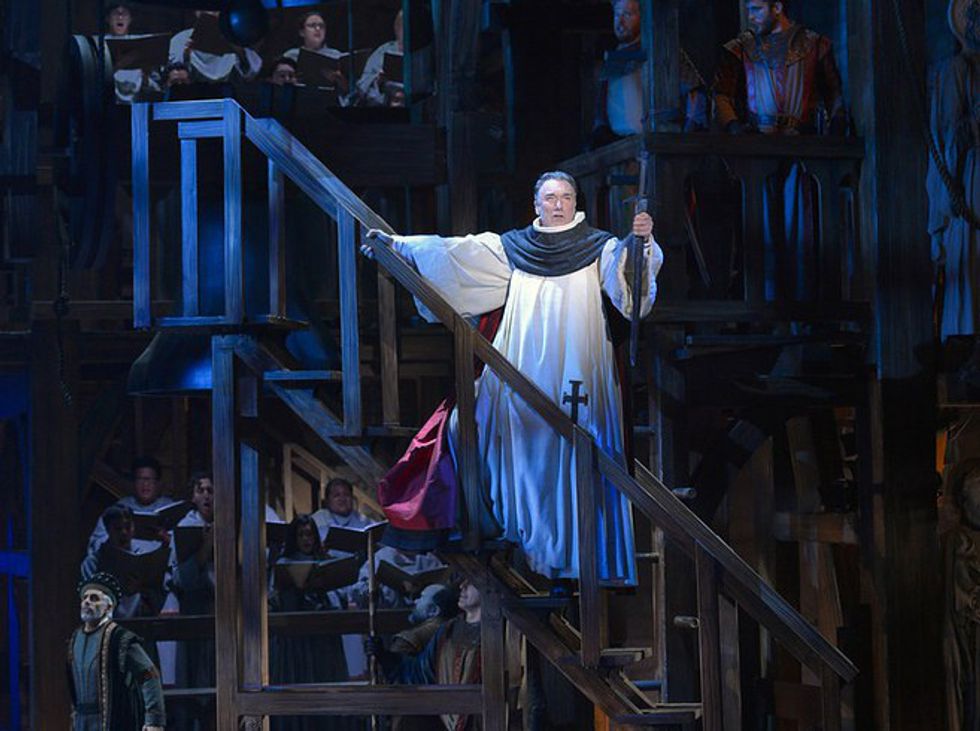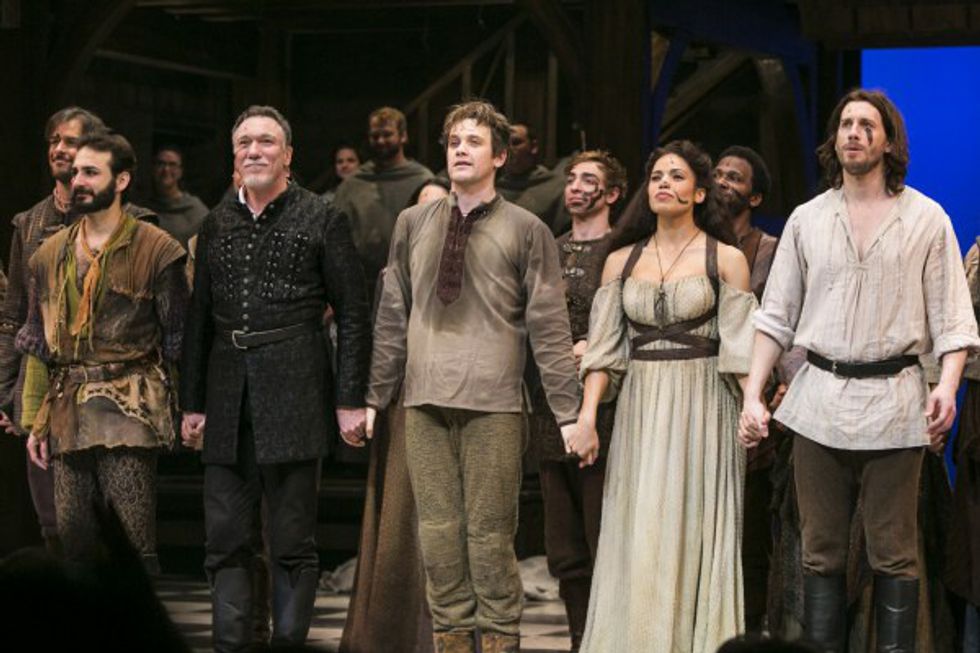"For the justice of the realm, and for the salvation of Paris, it is my sacred duty to send this unholy demon back to hell!" As the thundering chords of the Kyrie Eleison sound, the monstrously deformed bell ringer of the cathedral of Notre Dame breaks free from the chains that bind him and swoops down to save the beautiful gypsy Esmeralda from burning at the stake. Then, climbing to the top of the cathedral, he lifts her high above his head and cries out "SANCTUARY!!!"
With music by Alan Menken and lyrics by Stephen Schwartz, Disney's 1996 movie and stage productions of Victor Hugo's Hunchback of Notre Dame, the show draws heavily on leitmotifs- short musical phrases referring to a specific character or event- assigned to specific characters, such as God Help the Outcasts for Esmeralda, Rest and Recreation for Captain Phoebus, Hellfire for the corrupt archdeacon Claude Frollo, and Out There for Quasimodo. That being said, there are several themes that are presented nearly constantly throughout the show that is not assigned to any specific character- the Kyrie Eleison, Dies Irae,and Olim.
This leaves the question- if God is returning during the events of the show, and the leitmotifs are present without a character assigned to them, assuming they refer to God, who is He?
First, let's look at the themes themselves
Dies Irae- "Day of wrath and doom impending."
The "Day of wrath" is a common theme throughout the show, and tends to show up when something drastic is occurring, with drastic consequences for the characters. For instance, we can see it first appear when Frollo, after the death of his brother Jehan, attempts to kill the baby Quasimodo.
Kyrie Eleison-
The "Lord have Mercy" is another common theme throughout the show, which often shows the inner workings of the characters themselves, often leading up to fleshed out character development.
Olim- "Olim, olim deus accelere, Hoc saeculum spendidum, accelere fiat venire olim"
As the curtain opens and we see the belltower of the cathedral of Notre Dame de Paris recreated on stage, we can hear the chorus open with this latin phrase that translates to "Once, long ago, God arrived in this age of brightness, He will come again."
FROM THE TOP OF THE SHOW we can see that God has somehow left, and will be brought back. This leaves the question- if God is coming back, who is He?
With all this in mind, let's now look at the characters themselves-
You could say it's Quasimodo, who gives blessings unto those in whom he finds favor (such as sitting On Top of the World with Esmeralda) and passing judgement on the wicked (such as casting the corrupt priest, Frollo, into the fiery molten lead far beneath the roof of the cathedral in the Finale/Finale Ultimo)
You could say it's Captain Phoebus (whose name literally means "god of the sun"), who sings over one of the only vocal reprises of the theme in Finale/Finale Ultimo convincing the citizens of Paris to fight against the soldiers of the cathedral guard trying to break into the cathedral and catch Quasimodo and Esmeralda.
You could say it's the gypsy leader Clopin, who seems to be the omniscient narrator of the story. While seeming to be on the side of the angels, he often sticks his head into the lives of the people of Paris and causes trouble (i.e. nearly hanging Quasimodo and Phoebus in The Court of Miracles).
You could even argue that it's Frollo, acting as the hands of God, passing judgement on the wicked and purging Paris of sin (which is told to us in the film version of The Bells of Notre Dame).
However, there are only a few instances where the theme ITSELF is sung, whether by the statuary of the cathedral (acting as a sort of Greek chorus) or by the actual characters themselves, and there's only one instance when the song itself is sung prominently. And in the Finale/Finale Ultimo, long after Esmeralda and Frollo- the two people Quasimoido only ever loved/loved him- are dead, a random little girl enters onstage, contorts her body to match that of the hunchback's (to show that they are the same), and everyone else on stage follows suit. All this while a lone female voice sings the theme, followed by a counterpoint reprise of Someday.
In my artistic interpretation of this fantastic musical, the PEOPLE THEMSELVES are God- rather, they are His hands. The people are the ones who grant mercy and love to the deformed hunchback that they previously shunned. The people are the ones who take actions against the forces of the evil, corrupt establishment. And it is the people, by letting themselves be molded and worked, who become the hands of God.
"Now you are the body of Christ, and individually members of it." - 1 Corinthians 12:27 ESV


